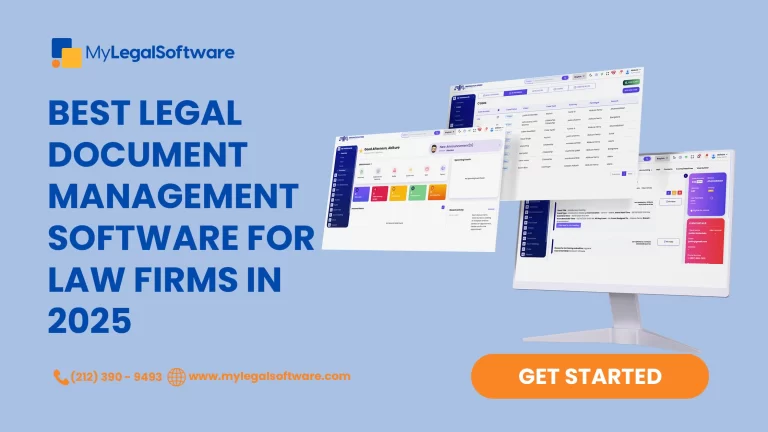Leveraging Analytics in Legal Software for Better Decision Making
In today’s rapidly changing world, legal professionals are constantly looking for ways to stay ahead of the curve. Gone are the days when lawyers relied solely on intuition, experience, and piles of paperwork. Now, legal software with integrated analytics is transforming the way law firms make decisions. This powerful combination of data-driven decision making and business intelligence tools for law firms is giving attorneys and their teams the ability to work smarter, instead of harder. But how exactly does this work, and how can your firm benefit from it? Let’s dive in.
What is Legal Analytics?
Before we get into how analytics in legal software can benefit your firm, let’s first break down what legal analytics is. At its core, legal analytics refers to using data to help make decisions in the legal field. Whether it’s predicting case outcomes or managing resources more efficiently, the power of data helps law firms to analyze trends, track performance, and optimize strategies for better results.
For example, imagine you have a complex case and you’re trying to figure out your chances of success. Instead of relying on past experiences alone, you can use data to assess similar cases and predict how things might play out. That’s the beauty of data-driven decision making—it’s not about replacing a lawyer’s judgment but complementing it with valuable insights.
Why Analytics in Legal Software Is a Game-Changer
1. Improved Case Outcomes with Predictive Analytics
When you’re handling multiple cases at once, predicting outcomes can feel like a shot in the dark. But what if you could tap into historical case data to make better-informed predictions? That’s exactly what predictive analytics does for law firms.
By analyzing previous cases with similar circumstances—whether it’s the type of case, the legal precedents, or the judges involved—legal software with predictive capabilities can estimate the likelihood of success and suggest strategies to increase your chances. This isn’t about guessing; it’s about using real data to make smarter choices.
For instance, a personal injury lawyer could use analytics in legal software to analyze past cases involving similar injuries in the same jurisdiction. Based on that data, the software could predict the most likely outcome, helping the lawyer decide whether it’s better to settle or proceed to court.
2. Efficient Resource Allocation
Running a law firm means juggling a variety of cases, clients, and deadlines. It’s easy for things to get overwhelming, especially when you’re managing a team. Here’s where business intelligence tools for law firms come into play.
Legal software equipped with analytics can help law firms track how resources—time, money, and personnel—are being allocated across cases. By analyzing this data, the software can highlight inefficiencies and suggest improvements. For example, if certain tasks are taking longer than expected or if a team member consistently excels at a specific type of case, the software can help reassign resources to improve overall productivity.
By leveraging data-driven decision making, your firm can avoid burnout, manage caseloads more effectively, and ensure that resources are being used where they will have the greatest impact.
3. Client Insights and Improved Customer Satisfaction
At the end of the day, the key to a successful law firm is happy clients. But how do you ensure your clients are consistently satisfied with your service? The answer lies in using data to gain deeper insights into client needs and preferences.
Analytics tools within legal software can track client interactions and highlight patterns that reveal what clients care about most. For example, you might discover that clients in a particular demographic prefer virtual consultations or that they tend to reach out more frequently at certain stages of their case. By making these small tweaks, your firm can offer a more personalized experience, leading to happier clients and more referrals.
Moreover, predictive analytics can help law firms set clearer expectations for their clients. By using historical data to forecast the timeline and potential outcomes of a case, lawyers can keep clients in the loop and reduce uncertainty, which builds trust and strengthens relationships.
4. Identifying New Business Opportunities
Running a successful law firm is about more than just managing the day-to-day. It’s also about spotting opportunities for growth. By using analytics, law firms can identify emerging trends in legal practice areas or uncover untapped markets.
For example, business intelligence tools can analyze industry trends and pinpoint areas where demand is growing. Maybe you notice that clients in a certain industry (say, tech startups) are increasingly in need of intellectual property services. Armed with this data, your firm can pivot and start offering new services to meet that demand, keeping you one step ahead of the competition.
Additionally, by analyzing financial data, law firms can see which practice areas are most profitable and which ones may need a little more attention. This helps ensure that your firm is always moving in the right direction.
5. Enhanced Compliance and Risk Management
The legal field is heavily regulated, and non-compliance can lead to hefty fines, lawsuits, or damage to your firm’s reputation. With data-driven decision making, legal software can help you stay compliant and mitigate risk.
For example, analytics tools can continuously monitor your firm’s activities to ensure that they comply with regulations, alerting you to any potential violations before they become a bigger issue. If you’re working with highly regulated sectors, like healthcare or finance, staying on top of compliance becomes even more critical. Legal software can flag potential issues, track deadlines, and ensure that all the necessary steps are followed.
By providing real-time insights into risk, analytics in legal software allows your firm to proactively manage compliance issues, reducing the likelihood of costly mistakes.
6. Data-Backed Legal Research
Legal research can be a time-consuming, manual process. Imagine having to sift through thousands of documents to find the one piece of information you need. With legal software that integrates analytics, that process can be much quicker.
Legal analytics tools can help you search through large amounts of legal data—case law, statutes, rulings, etc.—and pinpoint the most relevant information for your case. Instead of spending hours in the library, lawyers can use software to quickly find the cases, precedents, or legal arguments that will support their position. This means more time spent on strategy and client interactions, and less time spent on tedious research.
The Role of Data-Driven Decision Making in Legal Software
Now that we’ve explored the benefits of using analytics in legal software, it’s important to understand why data-driven decision making is such a game-changer.
- Strategic Planning: Data allows law firms to make decisions based on trends and past performance, rather than guesswork. By analysing outcomes from similar cases, firms can better plan their legal strategies and allocate resources efficiently.
- Cost Management: Legal firms can track expenses and identify areas where they are overspending. This helps keep the firm financially healthy while ensuring clients get high-quality service at competitive rates.
- Performance Analysis: Analytics can track your firm’s performance on multiple fronts—from case outcomes to employee efficiency. This data helps you understand what’s working and where improvements are needed.
- Improving Workflow: Data helps identify bottlenecks in your workflow, allowing you to streamline processes and improve efficiency. Whether it’s a delay in document filing or excessive back-and-forth communication, analytics can help you eliminate inefficiencies and improve case turnaround times.
Integrating Legal Analytics into Your Firm’s Workflow
Integrating analytics in legal software into your law firm’s daily operations may seem daunting, but it’s easier than you think. Here’s how to get started:
- Choose the Right Software: Not all legal software comes with robust analytics features. Look for software that offers customizable dashboards, reporting tools, and predictive capabilities.
- Train Your Team: Analytics are only valuable if your team knows how to use them. Provide training to ensure everyone understands how to interpret data and apply it to their practice.
- Start Small: You don’t have to overhaul your entire firm’s operations overnight. Start by focusing on key metrics like case outcomes and client satisfaction and gradually expand to other areas.
- Regularly Review Data: Make data analysis a regular part of your firm’s decision-making process. Use reports and insights to adjust strategies, track progress, and improve performance.
Conclusion
As the legal industry continues to evolve, integrating analytics in legal software has become a revolutionary advancement for law firms. By embracing data-driven decision making and utilizing business intelligence tools for law firms, your firm can enhance case outcomes, improve efficiency, and build stronger relationships with clients. In short, the future of law is data-driven, and those who adapt will reap the rewards.
Ready to boost your firm’s decision-making with powerful legal analytics? Visit MyLegalSoftware.com to explore the best legal software solutions that will take your firm’s operations to the next level.
Want to learn about the importance of compliance in legal software? Go here.
Frequently Asked Questions
- How can predictive analytics help my law firm?
Predictive analytics can help your firm forecast case outcomes, identify risks, and create more effective strategies. By analysing historical data from similar cases, you can make informed decisions about whether to settle, go to trial, or try alternative solutions.
- What are business intelligence tools for law firms?
Business intelligence tools for law firms are software solutions that analyse data to provide insights on everything from case performance to resource allocation. These tools help law firms make smarter decisions based on real data, improving efficiency and client outcomes.
- Is it difficult to integrate analytics into my legal software?
Integrating analytics into your legal software is typically straightforward, especially with modern solutions that are designed to be user-friendly. With the right training and support, your team can quickly adapt to using analytics for more informed decision-making.








